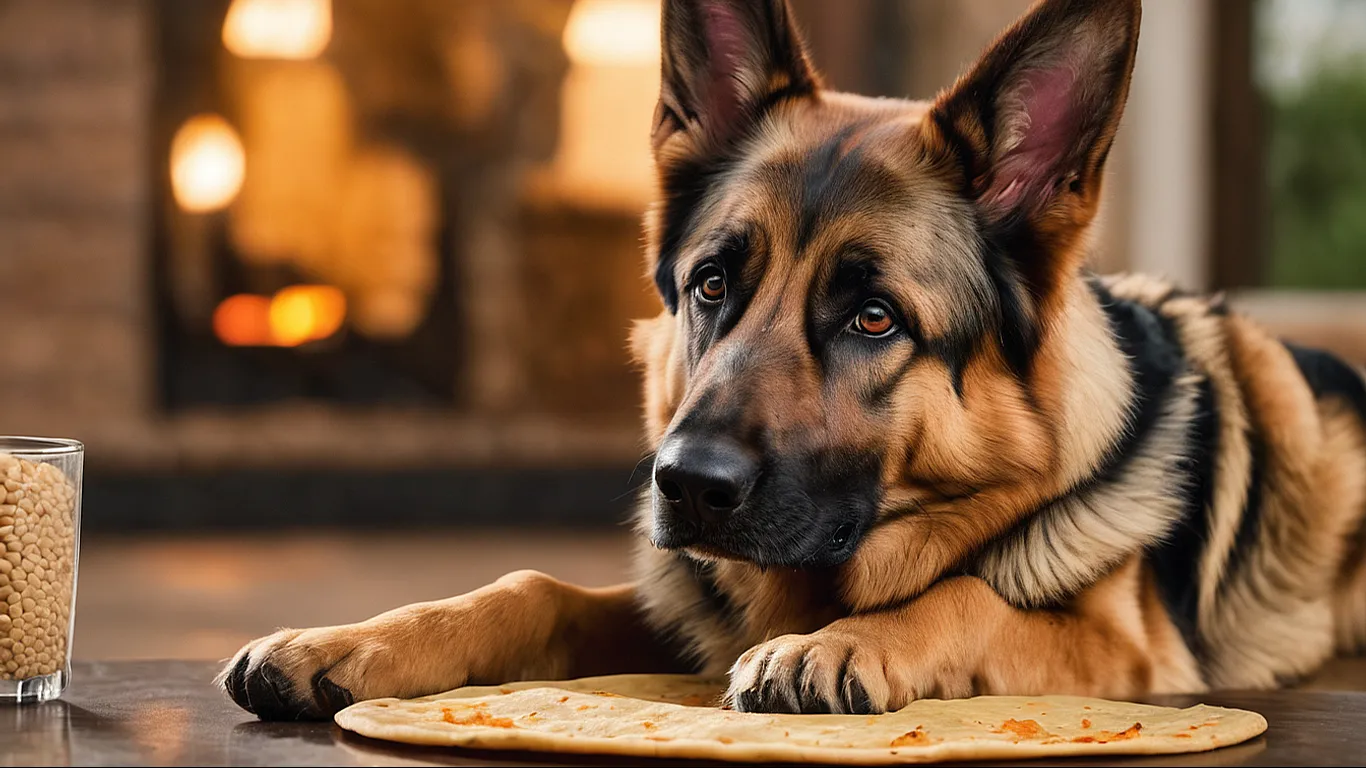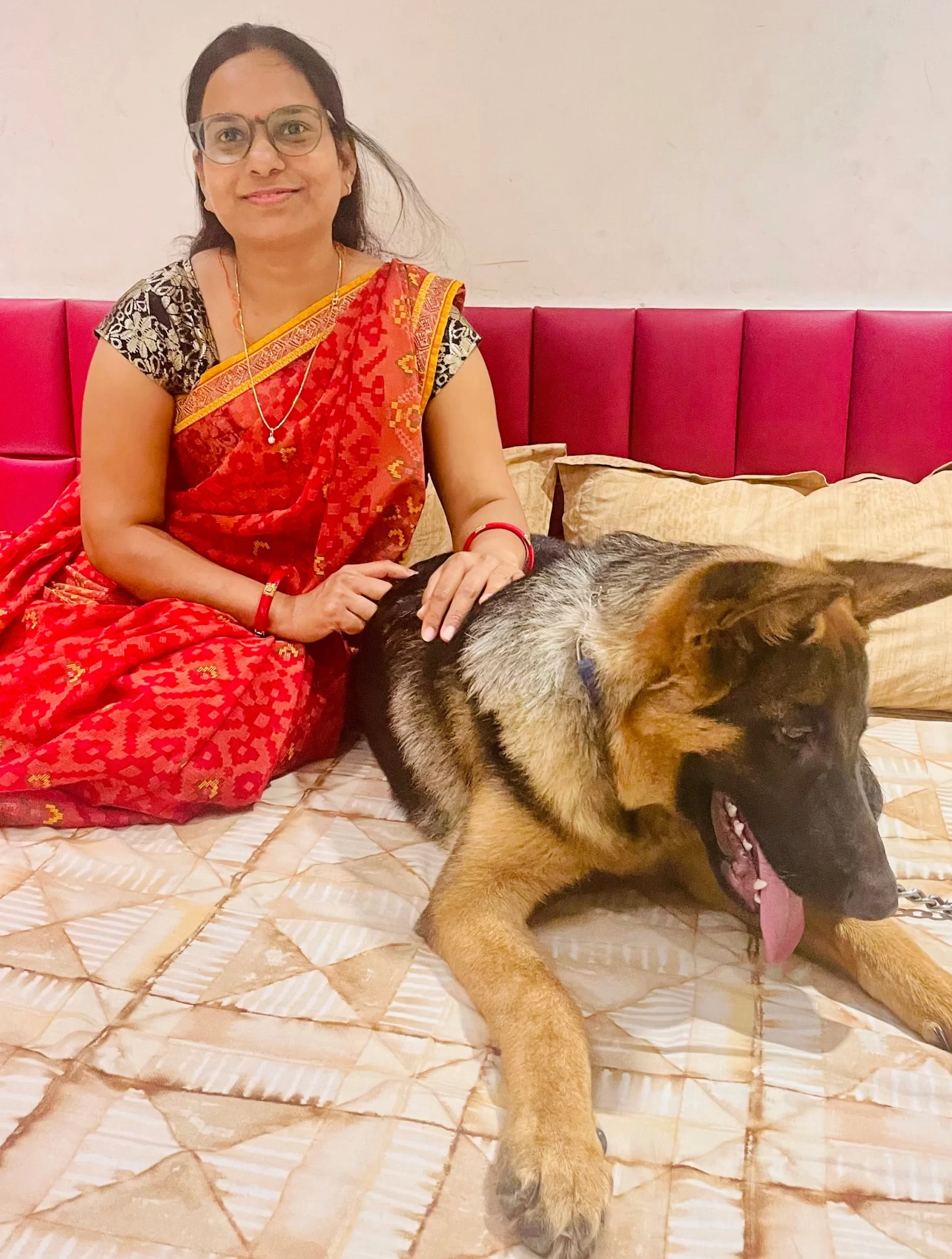Dogs may love to dig into whatever their owners are eating, but as responsible pet owners, it’s essential to ensure that we’re feeding them the right food.
One question that often arises is whether dogs can eat chapati – a staple food in many parts of the world.
Chapati, also known as roti or flatbread, is made of wheat flour and water and is a popular choice among vegans and vegetarians.
If you’re a dog owner and have wondered whether your furry friend can eat chapati, this blog post will give you all the information you need to know.
Feeding Chapati to Dogs: Factual Data
When it comes to feeding chapati to your furry friend, it is important to consider the facts.
While some may have had success feeding their dogs this flat bread, it is not recommended to do so.
Chapati contains gluten and starch which can be harmful to dogs, especially in the long-term. It is important to provide your dog with a balanced diet that meets their nutritional needs.
Avoid feeding them roti or ghee roti as well, as they also have no nutritional benefit for dogs.
Stick to feeding your furry friend a diet that is specifically formulated for them and consult with your vet if you have any concerns or questions. Remember, the health of your furry friend should always come first.
Dogs & Chapati: Benefits and Risks
Dogs love foods that we eat, and as a pet owner, it’s important to know what’s safe and beneficial for them. When it comes to feeding your dog with chapati, there are some benefits and risks to consider.
Chapati is relatively safe for dogs in moderation, as it contains essential carbohydrates and protein that can aid the dog’s overall health.
However, overfeeding chapati to dogs can lead to potential health risks such as an upset stomach, diarrhea, and obesity.
It’s important to keep in mind that chapati should not replace the dog’s primary diet and that moderation is key.
Always consult your vet before introducing any human food into your dog’s diet, as each dog’s dietary needs may vary.
Roti Toxicity in Dogs: Is it Real?
Roti toxicity in dogs is a growing concern for pet owners who want to feed their furry friends a healthy and balanced diet.
While chapati may seem like a harmless treat for dogs, there are potential risks associated with feeding them roti regularly.
While there’s no concrete evidence that roti is toxic to dogs, certain ingredients used in making this dish can be harmful to your pet’s health.
Some dogs may develop an allergic reaction to wheat flour, leading to vomiting, diarrhea, and other gastrointestinal problems.
Additionally, roti is made with ghee, a form of clarified butter, which is high in fat and may contribute to weight gain and obesity in dogs.
Therefore, it’s important to consult with a veterinarian before introducing roti or any other new food item to your dog’s diet.
Can Dogs Eat Chapati as Main Meal?
If you’re considering feeding your dog chapati as their main meal, it’s important to understand that there really aren’t any benefits to this carb-heavy food.
While chapati and roti aren’t considered toxic to dogs, any dish that includes wheat as a main or secondary ingredient can spell disaster for your pup’s health.
Dogs’ digestive systems are designed to tolerate pure carbs like rice, but they may suffer from health problems if they consume gluten on a regular basis.
It’s best to stick to a balanced and nutritious diet specifically formulated for dogs.
Consult with your veterinarian to ensure that your furry friend is getting the proper nutrition they need to stay healthy and energetic.
Chapati and Roti: Are they Toxic to Dogs?
Chapati and roti are not considered toxic for dogs, but they also don’t offer any benefits.
However, there is a potential risk for dogs when consuming these flatbreads. Chapati contains high levels of gluten, which can be toxic for dogs.
Gluten is difficult for dogs to digest and can cause discomfort and digestive issues.
While feeding your dog chapati as an occasional treat may not cause immediate harm, it’s best to avoid it as a regular part of their diet.
It’s important to prioritize your dog’s nutritional needs and stick to food that is specifically designed for their diet.
Ghee Roti for Dogs: Is it Safe?
While ghee roti may seem like a tasty treat to give your dog, it’s important to consider if it’s safe for their health.
Ghee is a form of clarified butter commonly used in Indian cooking and may provide some benefits for your dog’s diet and skin irritations in small amounts.
However, feeding your dog ghee roti regularly or in large amounts can cause gastrointestinal upset and other digestive issues.
It’s best to stick to a balanced diet of dog-specific food and treats recommended by your veterinarian to ensure your furry friend stays healthy and happy.
Remember to always check with your vet before introducing any new foods to your dog’s diet.
Gluten in Roti & Dogs’ Digestion
When it comes to feeding your furry companion, it’s important to consider their digestive health and nutritional needs.
That’s why some dog owners wonder whether feeding their dogs roti or chapati, made from wheat flour, is safe.
While roti and chapati are not inherently harmful to dogs, it’s important to note that dogs don’t digest gluten as easily as humans do.
Gluten is a protein found in wheat that can cause digestive issues like bloating, diarrhea, and vomiting in dogs, especially if consumed in large amounts.
This means that feeding your dog roti or chapati regularly as a main meal or in large quantities could lead to gastrointestinal problems.
It’s best to stick to dog-specific foods that are specifically formulated to meet their nutritional needs and avoid any potential digestive issues.
The Truth about Feeding Dogs Roti
The truth is, feeding roti or chapati to your dog is not recommended.
While some may argue that it’s harmless, the fact remains that roti contains gluten which can be harmful to dogs.
Their digestive system is not designed to process wheat-derived carbs like humans’ are.
While some dogs may not show any immediate symptoms after consuming roti, it can lead to long-term health problems.
It’s always best to stick to a diet that is specifically designed for dogs and provides them with the nutrients they need to thrive.
So, as tempting as it may be to give your furry friend a bite of your chapati, it’s better to avoid it altogether.
Stick to feeding your dog a diet that is safe and suitable for their unique nutritional needs.
Chapati: Short-term Problems for Dogs?
While chapati may not be toxic to dogs, it can cause short-term problems for them.
One particular ingredient in chapati, gluten, can be difficult for dogs to digest. This can lead to symptoms such as diarrhea, vomiting, and loss of appetite.
Additionally, chapati is a carbohydrate-rich food that can contribute to weight gain and other health issues if given regularly to dogs.
It’s important to remember that dogs have different nutritional needs than humans and should be fed a diet specifically designed for their species.
While it may be tempting to give your furry friend a taste of chapati or other human foods, it’s best to stick to a balanced diet of dog food approved by your veterinarian.

